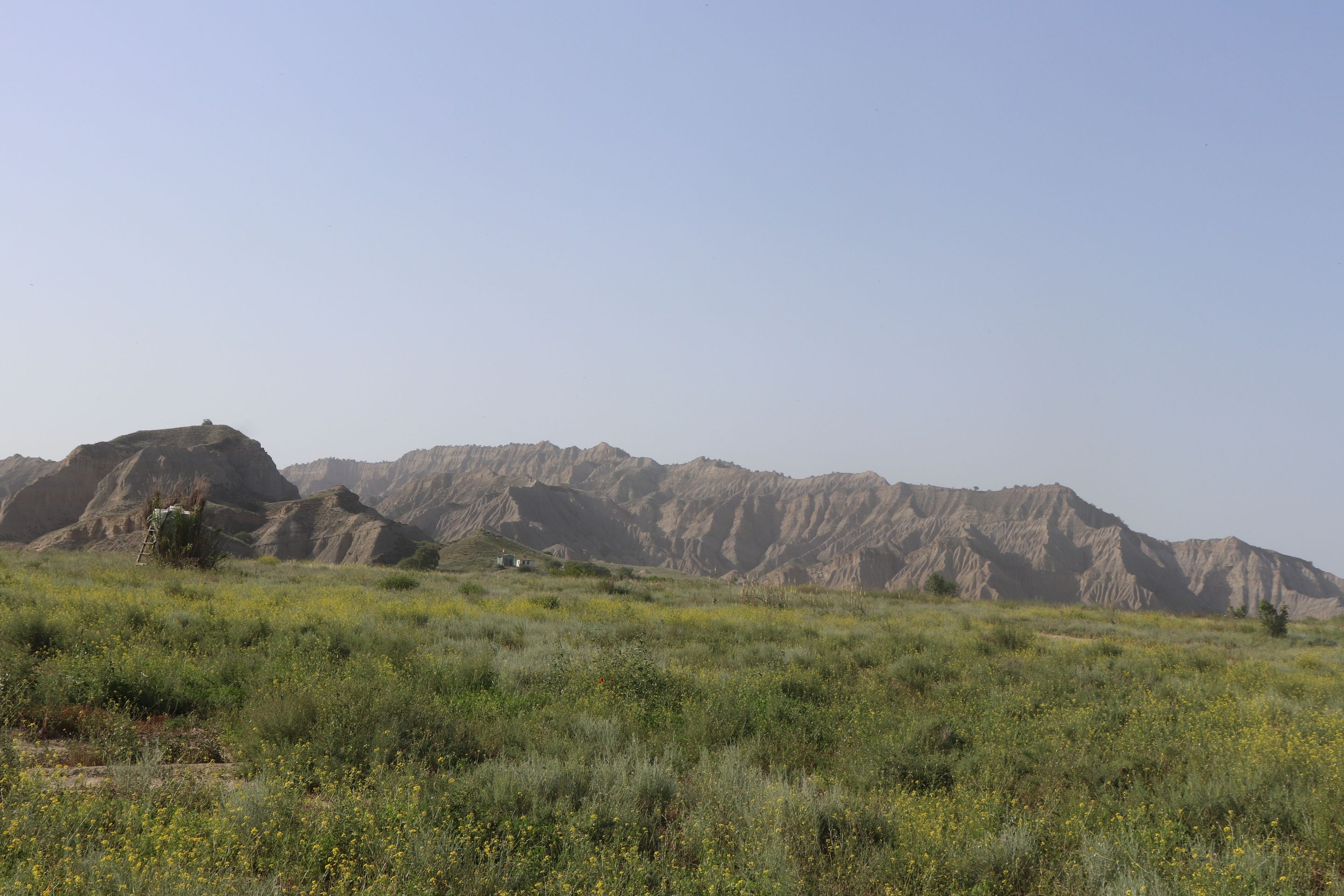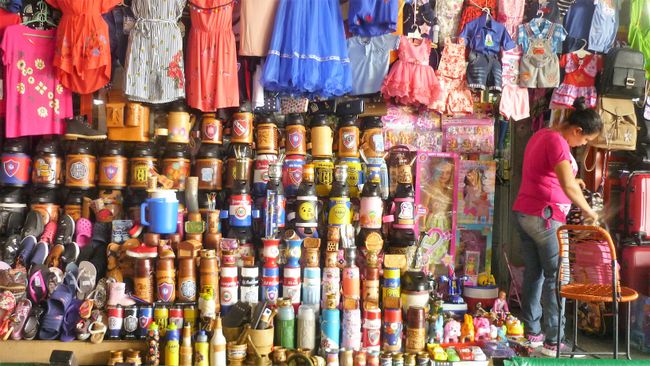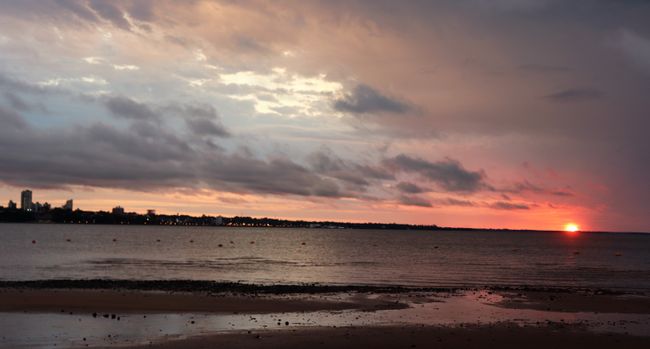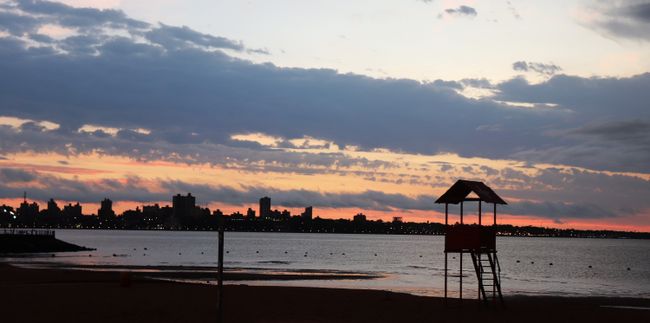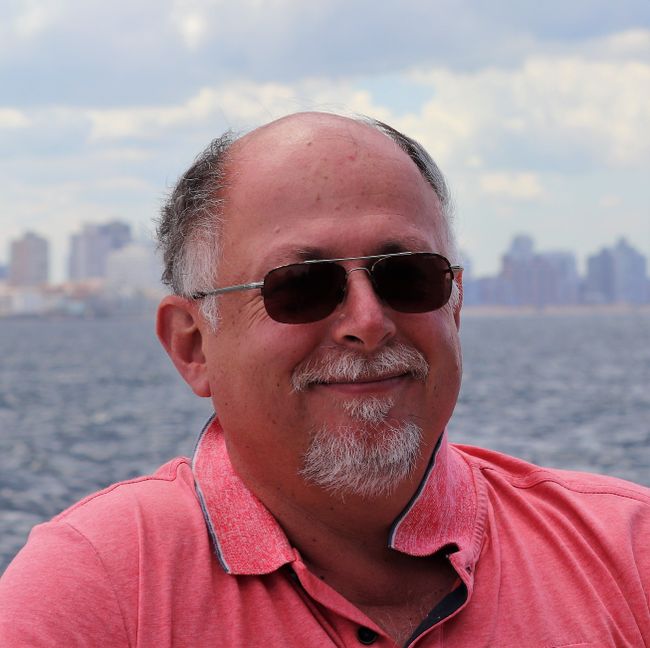
Wolfgangs Spezialreisen - Georgien2024
vakantio.de/lateinamerika_ost_west
From Asunción to Encarnación
E phatlaladitšwe: 09.10.2018
Ingwadiše go Lengwalo la Ditaba
Today's bus trip was 368km long, but it took 5:30 hours. (the first picture is from the bus station in Asunción). The highways in Asunción are relatively narrow with endless small shops - also a few supermarkets, gas stations, but small structures and many cars, buses, motorcycles, traffic lights (where buses even stop - taxi drivers and other cars not necessarily). The landscape doesn't offer anything special: a lot of agriculture - rather less arable land, but more meadows with cattle, horses - poultry. The wide green strip is also used for grazing. Cows tied up - no mowing or nonsense like that. I feel sorry for the cows in the rain. Poultry generally runs freely, as do dogs. I have hardly seen a dog on a leash here yet. Paraguay is quite flat in the south. The vegetation is very green, but there is less forest than in Brazil and everything is growing right now - because it rains every day. The Rio Paraná, which I came across here in Encarnación (see Iguacu), is already up to 2 km wide and forms the border with Argentina again. During the evening walk with the sunset over the wide Paraná, it started to drizzle again, a pitch-black sky over the city, from which lightning flashed again. I'm staying here for 2 days because before I enter Argentina over the great river bridge, I will visit Trinidad with the ruins of a Jesuit mission. The Jesuits have long shaped the country and brought European cultural influence - they evangelized- and also came up with all the biblical place names: Asunción = Assumption of Mary, Encarnación = Incarnation. In 1516, the Jesuit Father Roque Gonzalez de la Santa Cruz came up with that: actually 'Nuestra Senora de la Encarnación de Itapúa' or something like that. The carnival (Carne=meat, Incarnation=becoming flesh) is so famous and atmospheric here that the city prides itself as the 2nd Rio de Janeiro. There is little evidence of that tonight. Well, let's see, I'll still go around the houses. I'm not even hungry yet at just after 8pm because there was a chipa seller on the bus selling his delicious baked goods and I just had to try them. They are cheese pastries made from cassava flour - still warm from the oven - hmmm! Cassava is also permanently present in Brazil (there with the funny name of Aipim).
Ingwadiše go Lengwalo la Ditaba
Karabo
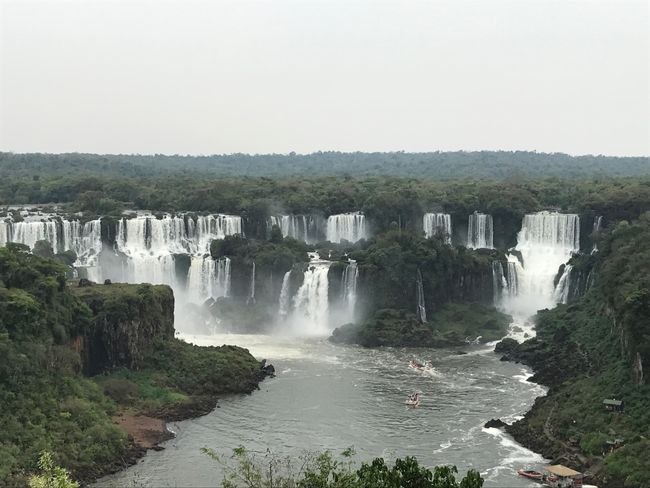
Dipego tša maeto Paraguay ya go swana le yona
